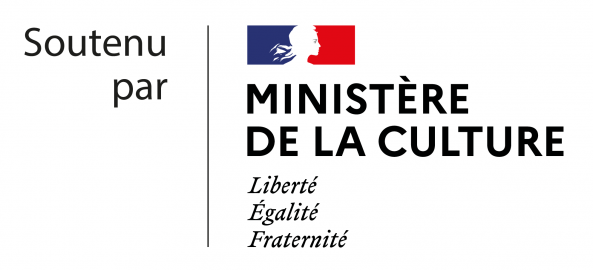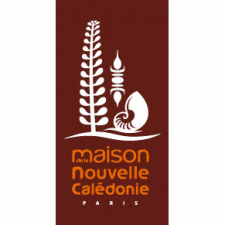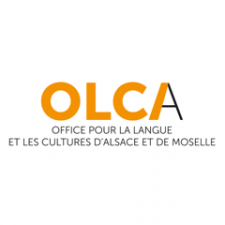LinguaLibre
Difference between revisions of "About"
WikiLucas00 (talk | contribs) m (stats update) |
|||
| (41 intermediate revisions by 9 users not shown) | |||
| Line 1: | Line 1: | ||
| + | <div class="section gap-l"> | ||
| + | <div class="columns v-center padded-m"> | ||
| + | <div> | ||
<languages/> | <languages/> | ||
<translate> | <translate> | ||
| − | <!--T: | + | <!--T:12--> |
| − | '''Lingua Libre''' is an | + | '''Lingua Libre''' is a project of the association '''''Wikimédia France''''' which aims to build a collaborative, multilingual, ''audiovisual corpus'' under free licence in order to: |
| + | * ''Expand knowledge'' '''''about languages''''' and '''''in languages''''' in an audiovisual way on the web, on Wikimedia projects and outside ; | ||
| + | * ''Support the development'' of '''''online language communities''''' — particularly those of poorly endowed, minority, regional, oral or signed languages — in order to help communities accessing online information and to ensure the vitality of the languages of these communities. | ||
| + | </translate> | ||
| + | </div> | ||
| + | <div style="text-align: center;"> | ||
| + | [[File:Lingua libre illustration - interface.svg|frameless|440px]] | ||
| + | </div> | ||
| + | </div> | ||
| + | </div> | ||
| + | |||
| + | <div class="section section-blue gap-s"> | ||
| + | <div class="columns v-center"> | ||
| + | <span style="font-size: 35px; line-height: normal;"> | ||
| + | <translate><!--T:13--> | ||
| + | Already '''<tvar|num1>{{formatnum:2000}}</> members''' and '''<tvar|num2>{{formatnum:1250000}}</>+ recordings''' on Lingua Libre, join us</translate> | ||
| + | </span> | ||
| + | <div style="margin-top: -5px; text-align: center;"> | ||
| + | [[Special:RecordWizard|<span class="mw-ui-button mw-ui-neutral" role="button" aria-disabled="false"><translate><!--T:20--> Record your voice</translate></span>]] | ||
| + | </div> | ||
| + | </div> | ||
| + | </div> | ||
| + | |||
| + | <div class="section gap-l"> | ||
| + | <div class="columns v-center padded-m"> | ||
| + | <div style="text-align: center;"> | ||
| + | [[File:Music-technology-guitar-microphone-studio-amplifier-846852-pxhere (cropped).jpg|frameless|440px|class=shadow]] | ||
| + | </div> | ||
| + | <div> | ||
| + | <translate>== How to participate? == <!--T:14--> | ||
| + | |||
| + | <!--T:21--> | ||
| + | You can use '''Lingua Libre''' by exploring and reusing recordings, contribute to the corpus by recording words, or improve the website itself, in consultation with the community. | ||
| + | |||
| + | <!--T:15--> | ||
| + | The '''''Record Wizard''''' tab allows to record short audios (1 word, 1 phrase), to categorize them and to publish them on '''Wikimedia Commons''' from a computer or smartphone. To do so, you will need to '''[<tvar|login>https://lingualibre.org/index.php?title=Special:UserLogin&returnto=Special%253AMyLanguage%252FLinguaLibre%253AAbout&returntoquery=title%3DSpecial%253AMyLanguage%252FLinguaLibre%253AAbout</> log in]''' or create a user account. The user guide is available on the help page. | ||
| + | |||
| + | <!--T:16--> | ||
| + | To modify the website pages, simply log in and click on Modify. To add more pages, the process is in two steps: enter the title of the page you wish to create in the search engine, with the prefix "LinguaLibre:". A message will appear inviting you to create the page. For any substantial modification, please consult the community beforehand. | ||
| + | </translate> | ||
| + | </div> | ||
| + | </div> | ||
| + | </div> | ||
| − | + | <div class="section section-grey gap-m"> | |
| + | <div class="columns padded-m v-center"> | ||
| + | <div> | ||
| + | <translate>==== Interact with the community ==== <!--T:17--> | ||
| + | <!--T:22--> | ||
| + | Do not hesitate to inform the team of any element that could be improved. To do so, discussions take place in the Chat Room, on the mailing list or on Discord. | ||
</translate> | </translate> | ||
| − | + | </div> | |
| + | <div style="text-align: right;"> | ||
| + | [https://discord.gg/Bqn3yXCp89 <span class="mw-ui-button mw-ui-neutral" role="button" aria-disabled="false" style="margin-right: 15px; margin-bottom: 11px;"><translate><!--T:23--> Discord</translate></span>] | ||
| + | [https://meta.wikimedia.org/wiki/Special:MyLanguage/Lingua_Libre <span class="mw-ui-button mw-ui-neutral" role="button" aria-disabled="false" style="margin-bottom: 11px;"><translate><!--T:24--> Project on Meta</translate></span>] | ||
| + | <br> | ||
| + | [https://lingualibre.org/wiki/LinguaLibre:Chat_room <span class="mw-ui-button mw-ui-neutral" role="button" aria-disabled="false" style="margin-right: 15px;"><translate><!--T:25--> Chat room</translate></span>] | ||
| + | [https://phabricator.wikimedia.org/tag/lingua_libre/ <span class="mw-ui-button mw-ui-neutral" role="button" aria-disabled="false" style="margin-right: 15px;"><translate><!--T:26--> Phabricator</translate></span>] | ||
| + | [https://github.com/lingua-libre <span class="mw-ui-button mw-ui-neutral" role="button" aria-disabled="false"><translate><!--T:27--> Github</translate></span>] | ||
| + | </div> | ||
| + | </div> | ||
| + | </div> | ||
| − | = | + | <div class="section section-white gap-l"> |
<translate> | <translate> | ||
| − | <!--T: | + | == Why participate? == <!--T:18--> |
| − | * | + | |
| − | + | <!--T:28--> | |
| − | * | + | Lingua Libre comes from the observation of several lacks on Wikimedia projects and on the web in general: |
| − | * | + | |
| − | </ | + | <!--T:29--> |
| + | * Lack of diversity: While the web is in theory open to everyone, its content is far from representing all languages proportionally. More than 50% of websites are in English; only 301 of the world's 7000+ languages have a free encyclopedia <tvar|1><sup>[https://w3techs.com/technologies/overview/content_language/all <nowiki>[1]</nowiki>]</sup></>, with a content that is inferior in quality and quantity to those of more endowed languages such as Wikipedia in English<tvar|2><sup>[https://w3techs.com/technologies/overview/content_language/all <nowiki>[1]</nowiki>]</>,<tvar|3>[https://athenaeum.libs.uga.edu/handle/10724/37877 <nowiki>[2]</nowiki>]</sup></>. In addition, these websites host content that broadly reflects and meets Western standards and needs through the medium of the written word, which explains and helps to perpetuate their lack of linguistic diversity. | ||
| + | |||
| + | <!--T:30--> | ||
| + | * Lack of orality: Although languages are essentially spoken (only 4,000 of the world's 7,000 languages have a writing system)<tvar|4><sup>[https://www.ethnologue.com/enterprise-faq/how-many-languages-world-are-unwritten-0 <nowiki>[4]</nowiki>]</sup></>, knowledge sharing and communication via new information and communication technologies (NICTs) is mainly done in writing, particularly on the web, despite the rich multimedia format it allows. This mediation of the oral through the written word raises many barriers to contribution, such as the use of Unicode characters, the culture of the written word, the orthographic standardisation of the language or the literacy rate of the community. | ||
| + | |||
| + | <!--T:31--> | ||
| + | * These lacks of diversity and orality limit the ability of Internet users to communicate and contribute online to various web platforms where they cannot find content and communities sharing their language. Among the regional minority languages that are oral or signed, they threaten in particular the poorly endowed ones, many of which are currently in danger of extinction and for whom inclusion on the web is a major challenge and opportunity. | ||
| + | |||
| + | <!--T:32--> | ||
| + | * Indeed, of the 7000 languages in existence today, it is estimated that only 2500 will survive to the next century and only 250 (less than 5%!) will make their digital ascent — i.e. be used regularly for communication purposes in the digital space by native speakers who are comfortable on the web — a factor which is yet essential for their vitality<tvar|5><sup>[https://journals.plos.org/plosone/article?id=10.1371/journal.pone.0077056 <nowiki>[5]</nowiki>]</sup></>. Current initiatives by linguists and activists to document and share data, resources and content online in the languages to be preserved do not directly contribute to the development of a digitally-ascendant linguistic community of Internet users, and thus remain limited in their impact. | ||
| − | + | <!--T:33--> | |
| − | * | + | * Lingua Libre aims to make up for this lack of support by placing itself at the service of linguistic communities wishing to insert and promote their language into the digital space by exploring alternative means of communication to the written word, in the hope that this will free up online communication in a growing number of languages. This objective favours by its very nature regional minority languages that are poorly endowed in terms of oral or signed language, but also benefits more endowed languages that wish to highlight their oral and visual aspects. To fulfil its mission, Lingua Libre offers an online solution for mass recording, leading to the publication of a collaborative multilingual audiovisual corpus under free licence, whose vocation is information through consultation, and revitalisation by triggering the contribution of new language communities on Lingua Libre and then outside.</translate> |
| − | + | <center>{{2020 Coolest tool award|Lingua Libre|Diversity}}</center> | |
| − | + | </div> | |
| − | |||
| − | == | + | <div class="section gap-m"> |
| − | + | <h2 style="text-align: center;"><translate><!--T:19--> | |
| + | Partners</translate></h2> | ||
| + | <gallery mode="packed" heights=180> | ||
| + | File:Ministere Culture soutient.png|link=https://www.culture.gouv.fr/Thematiques/Langue-francaise-et-langues-de-France | ||
| + | </gallery> | ||
| + | <gallery mode="packed" heights=150> | ||
| + | File:lo congres.jpg|link=https://locongres.org/ | ||
| + | File:Mdlnc.png|link=https://www.mncparis.fr/ | ||
| + | File:olca.png|link=https://www.olcalsace.org/ | ||
| + | </gallery> | ||
| + | </div> | ||
| + | __NOTOC__ | ||
| + | __NOEDITSECTION__ | ||
Latest revision as of 18:43, 11 June 2024
Lingua Libre is a project of the association Wikimédia France which aims to build a collaborative, multilingual, audiovisual corpus under free licence in order to:
- Expand knowledge about languages and in languages in an audiovisual way on the web, on Wikimedia projects and outside ;
- Support the development of online language communities — particularly those of poorly endowed, minority, regional, oral or signed languages — in order to help communities accessing online information and to ensure the vitality of the languages of these communities.
How to participate?
You can use Lingua Libre by exploring and reusing recordings, contribute to the corpus by recording words, or improve the website itself, in consultation with the community.
The Record Wizard tab allows to record short audios (1 word, 1 phrase), to categorize them and to publish them on Wikimedia Commons from a computer or smartphone. To do so, you will need to log in or create a user account. The user guide is available on the help page.
To modify the website pages, simply log in and click on Modify. To add more pages, the process is in two steps: enter the title of the page you wish to create in the search engine, with the prefix "LinguaLibre:". A message will appear inviting you to create the page. For any substantial modification, please consult the community beforehand.
Why participate?
Lingua Libre comes from the observation of several lacks on Wikimedia projects and on the web in general:
- Lack of diversity: While the web is in theory open to everyone, its content is far from representing all languages proportionally. More than 50% of websites are in English; only 301 of the world's 7000+ languages have a free encyclopedia [1], with a content that is inferior in quality and quantity to those of more endowed languages such as Wikipedia in English[1],[2]. In addition, these websites host content that broadly reflects and meets Western standards and needs through the medium of the written word, which explains and helps to perpetuate their lack of linguistic diversity.
- Lack of orality: Although languages are essentially spoken (only 4,000 of the world's 7,000 languages have a writing system)[4], knowledge sharing and communication via new information and communication technologies (NICTs) is mainly done in writing, particularly on the web, despite the rich multimedia format it allows. This mediation of the oral through the written word raises many barriers to contribution, such as the use of Unicode characters, the culture of the written word, the orthographic standardisation of the language or the literacy rate of the community.
- These lacks of diversity and orality limit the ability of Internet users to communicate and contribute online to various web platforms where they cannot find content and communities sharing their language. Among the regional minority languages that are oral or signed, they threaten in particular the poorly endowed ones, many of which are currently in danger of extinction and for whom inclusion on the web is a major challenge and opportunity.
- Indeed, of the 7000 languages in existence today, it is estimated that only 2500 will survive to the next century and only 250 (less than 5%!) will make their digital ascent — i.e. be used regularly for communication purposes in the digital space by native speakers who are comfortable on the web — a factor which is yet essential for their vitality[5]. Current initiatives by linguists and activists to document and share data, resources and content online in the languages to be preserved do not directly contribute to the development of a digitally-ascendant linguistic community of Internet users, and thus remain limited in their impact.
- Lingua Libre aims to make up for this lack of support by placing itself at the service of linguistic communities wishing to insert and promote their language into the digital space by exploring alternative means of communication to the written word, in the hope that this will free up online communication in a growing number of languages. This objective favours by its very nature regional minority languages that are poorly endowed in terms of oral or signed language, but also benefits more endowed languages that wish to highlight their oral and visual aspects. To fulfil its mission, Lingua Libre offers an online solution for mass recording, leading to the publication of a collaborative multilingual audiovisual corpus under free licence, whose vocation is information through consultation, and revitalisation by triggering the contribution of new language communities on Lingua Libre and then outside.






